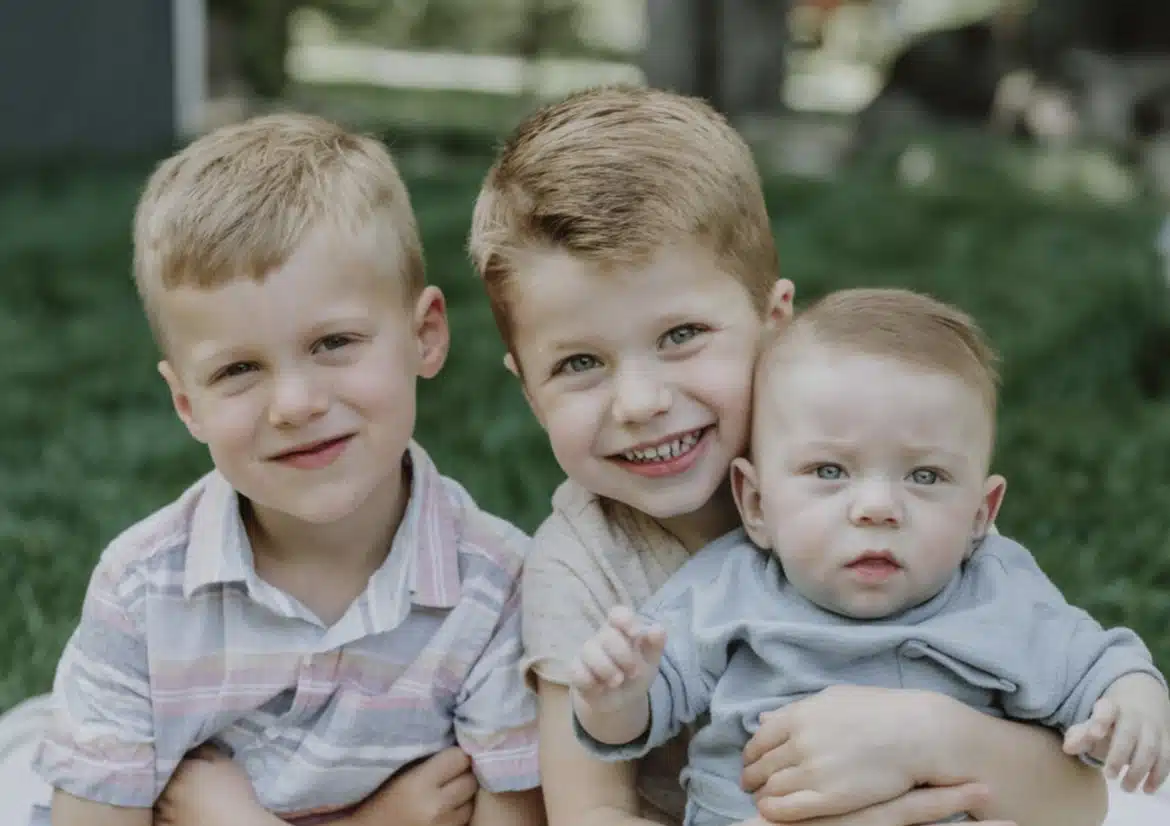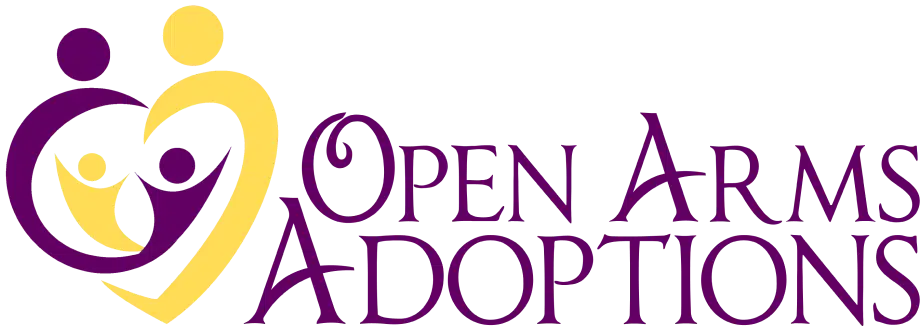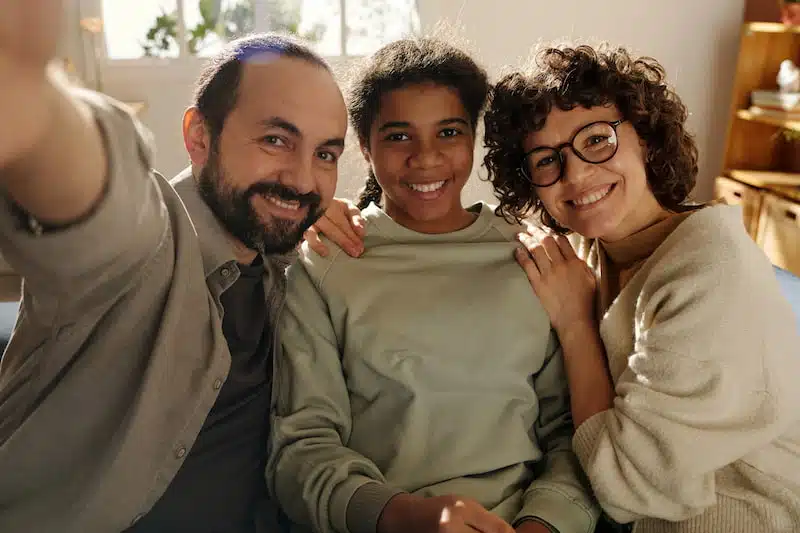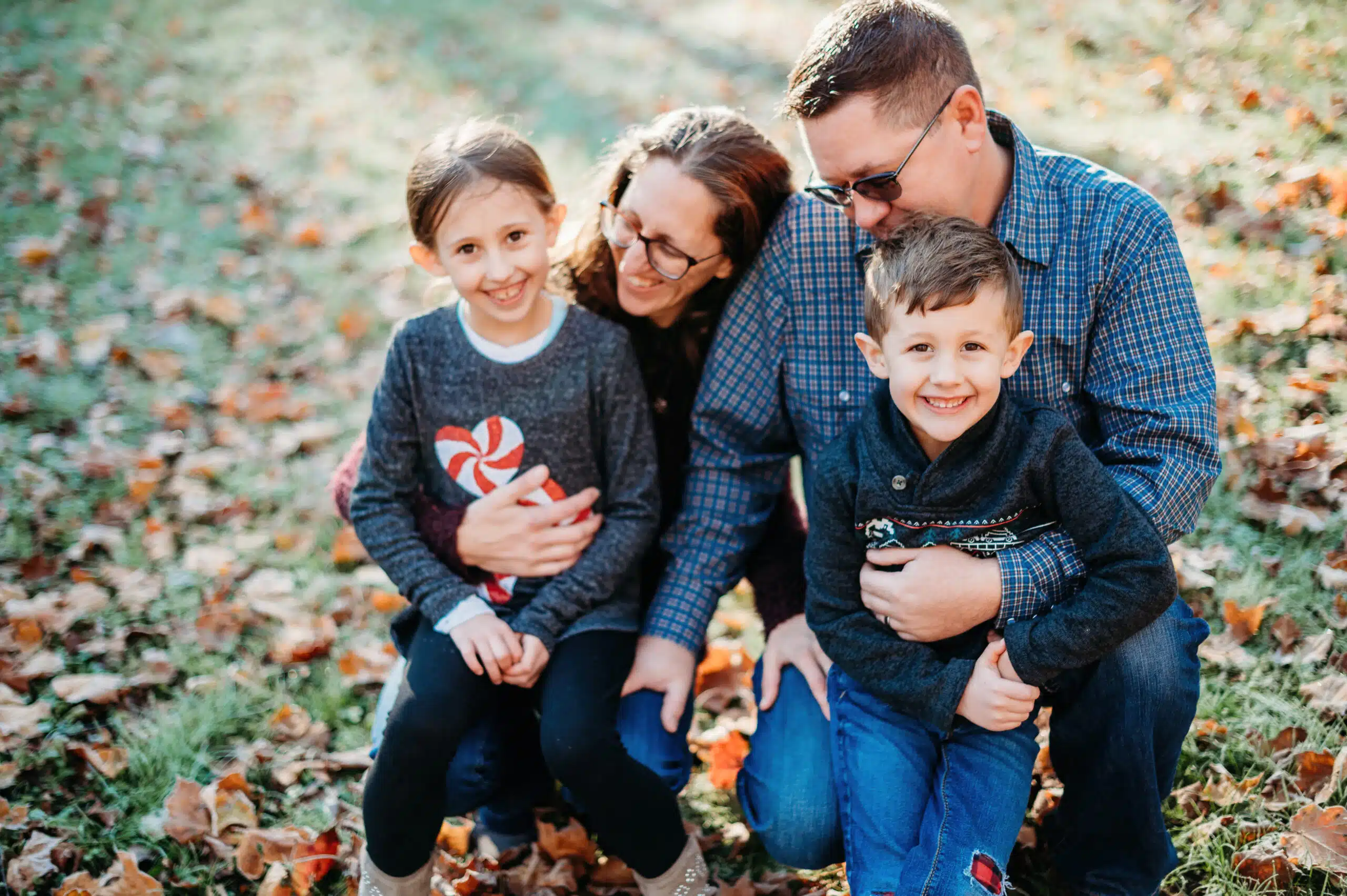Adoption is a profound journey marked by compassion, love, and the creation of families. Yet, amidst the beauty of this path, myths, and misconceptions often cast shadows of misunderstanding.
It is a journey filled with the resilience of the children involved, the commitment of adoptive families, and the hope of children searching for their forever families. But sometimes, myths shroud this journey, perpetuating false beliefs that can hinder progress and delay permanency for children.
Myth #1: “Adopted Children Don’t Bond as Well as Biological Children”
In adoption, perhaps one of the most prevalent myths is that adopted children don’t bond as well as biological children. This misconception has deep-seated origins, often from misunderstandings about the adoption process. However, it’s a myth that deserves to be debunked with empathy, research, and the stories of real families.
The idea that biological connections are the only source of genuine love and bonding has been a long-standing stereotype. This myth can be traced back to a lack of awareness about the dynamics of adoption and the emotional bonds that form within adoptive families.
In reality, research and countless real-life stories counter this myth with resounding evidence. Studies have consistently shown that the parent-child bonds formed in adoption are as strong, deep, and loving as those in biological families. Adoptive parents’ love, care, and dedication have fostered secure attachments with their children.
Many families who have experienced the beauty of adoption can attest to the incredible connections they share with their adopted children. The strength of these bonds transcends biology and is rooted in shared experiences, love, and the commitment to providing a nurturing and supportive environment.
By dispelling this myth, we honor the bonds within adoptive families and celebrate the human heart’s immense capacity to love and connect beyond genetic ties. Adoption is a journey marked by compassion, and we must acknowledge and promote the beautiful relationships that it creates.
Myth #2: “Children are in Foster Care Due To Juvenile Offenses”
The 2022 U.S. Adoption and Foster Care Attitudes Survey revealed a significant misconception: 51% of Americans think, incorrectly, that children enter foster care because they’ve done something wrong.
In reality, these children are placed in the foster care system through no fault of their own. They have often faced abuse, neglect, or other family issues, leading to a cycle of trauma and loss.
The foster care system is overburdened, and every year, more than 20,000 youth age out of care without finding permanent homes. This puts them at risk of homelessness and unemployment.
It’s critical to remember that no child is unadoptable. They only need the right adoptive family. Every child deserves a loving family to address their challenges before and after adoption.
Myth #3: “Adoption Is Always Expensive and Financially Draining”
Within the realm of dispelling adoption misconceptions, one myth that merits close examination is the belief that adoption is always an expensive and financially draining endeavor. This misconception can deter prospective parents from considering adoption and creates a barrier to finding forever families for children.
While it’s true that adoption can involve costs, the extent of these expenses can vary widely. Adoption encompasses a spectrum of avenues, from international and private adoptions, which may have higher associated fees, to foster care and domestic adoptions, which are often more affordable or cost-free.
Many adoptive parents choose the foster care system or explore domestic options that offer financial support or subsidies. In most adoptions from the foster care system, subsidies continue until the child is 18.
Various grants, tax credits, and employer benefits are available to alleviate adoption costs as well. The misconception that adoption is financially draining often overlooks these more accessible avenues.
It’s essential to dispel this myth and educate individuals about the diversity of adoption choices and the financial support mechanisms in place. While adoption does require a financial commitment, it’s not an insurmountable barrier to creating a loving family through adoption.
Myth #4: “Birth Parents Don’t Care About Their Children”
It’s time to challenge a harmful stereotype that has persisted in the adoption world: the belief that birth parents don’t care about their children. This misconception oversimplifies the complex and deeply emotional situations that birth parents experience.
The truth is that birth parents who choose adoption do so out of profound love and concern for their children’s well-being. Their choices are marked by selflessness and the desire to provide their children with the best possible life, even if that means making the heart-wrenching decision to place them for adoption.
Some birth parents make choices or face challenges that result in children being placed in the foster care system. In these circumstances, dismissing these birth parents as cold and uncaring individuals is perhaps easier. Despite these challenges, assuming that these choices reflect a lack of love or care is a mistake. In many cases, birth parents remain deeply invested in their children’s futures and want to ensure they have the opportunities, stability, and love they deserve. Often, these parents have also experienced multiple traumas in their lives.
Debunking this myth is essential for creating a more compassionate and empathetic understanding of adoption.
Myth #5: “Adopted Children Will Inevitably Suffer from Identity Issues”
The myth that adopted children will inevitably suffer from identity issues needs to be addressed with empathy and a deeper understanding of adoption’s complexities.
Identity development is a nuanced process for all individuals and is no different for adopted children. While adoption may introduce unique layers to this journey, it doesn’t guarantee identity issues. Most adopted children grow into well-adjusted adults with a strong sense of self.
Acknowledging the research and expert opinions emphasizing the importance of open communication, support, and education in helping adopted children develop a healthy sense of identity is essential.
Resources and guidance are available to navigate this aspect of adoption, ensuring that adopted children have the tools and understanding they need to explore their identities and thrive.
Myth #6: “Adoption Is Only for Infants”
Infant Adoption is not the only option available; countless older children and sibling groups need loving homes. These children come from a variety of backgrounds and life experiences, each with their own unique stories.
Older child and sibling group adoption carries its own joys. Allowing brothers and sisters to finish growing up together in the same home, giving an “older child” the chance to have their own cheerleading section on the soccer field …. these experiences bring a profound sense of happiness to both the adoptive parent and their children. Yes, these types of adoption also bring challenges, as does parenting in general. But the need is great….and the rewards are huge.
Myth #7: “Adoption Agencies Prefer Traditional Families Over LGBTQ+ Families”
Addressing discrimination in adoption is paramount, and one common myth to dispel is the belief that adoption agencies prefer traditional families over LGBTQ+ families.
This harmful misconception has no place in the adoption world, where inclusivity and equality are increasingly becoming the norm.
Many adoption agencies have evolved to embrace the principles of diversity and acceptance. Discrimination based on sexual orientation is unjust and unlawful in many places.
Most adoption agencies are committed to providing a welcoming and supportive environment for LGBTQ+ individuals and couples who wish to adopt. Additionally, many adoption agencies have specific programs and resources designed to support LGBTQ+ families throughout the adoption process.
These agencies are dedicated to fostering an inclusive adoption community that values love, stability, and the ability to provide a nurturing home above all else.
Myth #8: “Open Adoption Is Harmful to Adopted Children”
Open adoption, characterized by open communication and contact between birth parents or others important in the lives of adopted children, adoptive parents, and the adopted child, provides numerous advantages.
It fosters a sense of belonging, transparency, and an understanding of one’s identity, which can significantly contribute to an adopted child’s well-being.
Adopted children can access important information about their heritage and medical history by connecting with their birth families. Open adoption allows them to ask questions, seek answers, and develop a deeper understanding of their story.
Moreover, open adoption can help prevent feelings of loss, rejection, and curiosity that often emerge in closed adoption settings. It creates an environment where adopted children can grow up with a complete picture of their origins, helping to reduce the emotional burden of unanswered questions.
Open adoption is a powerful tool for building trust, confidence, and a strong sense of self for adopted children. It dispels the myth that it is harmful and reinforces the idea that open communication and relationships can profoundly benefit an adopted child’s life.
The truth is that open adoption can create an atmosphere of empathy, understanding, and love, enhancing the lives of adopted children and their families.
Myth #9: “Adoptive Parents Should Be Young”
There’s no perfect age to adopt a child. Many kids are cared for by their grandparents, and some adopted parents are over 55. What truly matters is if they’re ready and able to be good parents.
The most important thing is ensuring parents can give a loving and stable home to a child. We need to consider their health, emotional well-being, and money situation.
Age alone doesn’t tell us if someone can be a good parent. Some people in their 50s, 60s, or even older are in excellent physical and emotional shape and have the resources to raise a child well.
Setting an age limit can be unfair because it might exclude competent and loving parents. Instead, we should look at each person’s situation and decide based on their health and support system. This way, we ensure the child’s well-being is the top priority.
In short, it’s about something other than how old you are. It’s about whether you’re ready and able to provide a loving and stable home for a child. We should consider each case individually and focus on what’s best for the child.
Myth #10: “Adopted Children Are ‘Rescued’ or ‘Saved’”
While adoption unquestionably provides loving, stable homes for children in need, it’s essential to recognize that this journey is not a one-sided rescue act. It’s a mutual relationship where the child and the adoptive parents benefit.
Adoptive parents are not merely saviors but caregivers, mentors, and providers of love and support. In return, they often find immense joy, fulfillment, and love in the presence of their adopted child. The child, in turn, contributes to the lives of their adoptive family, enriching them with their unique personality and presence.
By dispelling this myth, we promote a more balanced and empathetic understanding of adoption, one that recognizes the profound two-way relationship that is formed. Adoption is a journey of love, shared growth, and mutual support, fostering meaningful connections beyond the “rescue.”
Shattering Adoption Myths to Foster Compassion and Understanding
In challenging these myths, we’ve affirmed the truths about adoption – a journey marked by love, selflessness, and the desire to provide children with stable, nurturing homes.
If you’re considering an adoption journey, we invite you to explore the possibilities with Open Arms Adoptions. Contact us today to learn more about how we can support you on this meaningful path.
Together, we can create an individualized plan to assist you in building or growing your family through adoption. By dispelling these myths, we pave the way for a more inclusive, accurate, and empathetic understanding of adoption.
Let’s ensure that the narrative around adoption is one marked by love, care, and shared stories of families coming together to create a brighter future for all involved.















